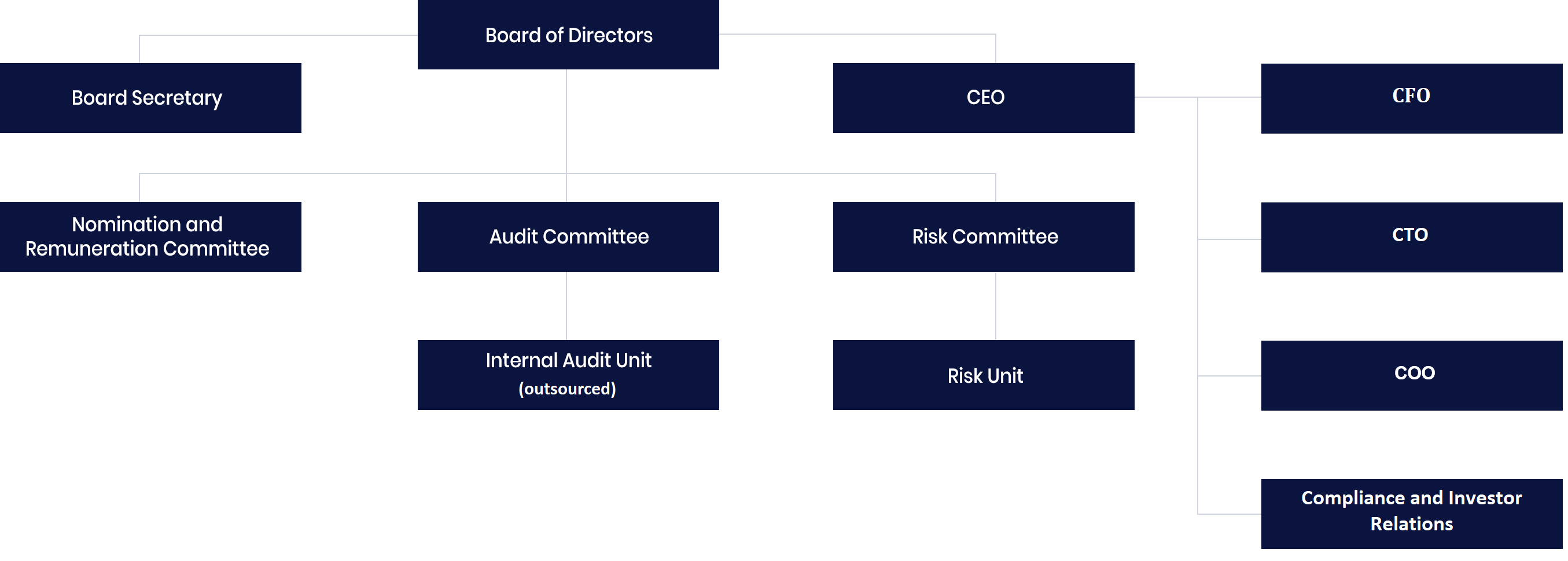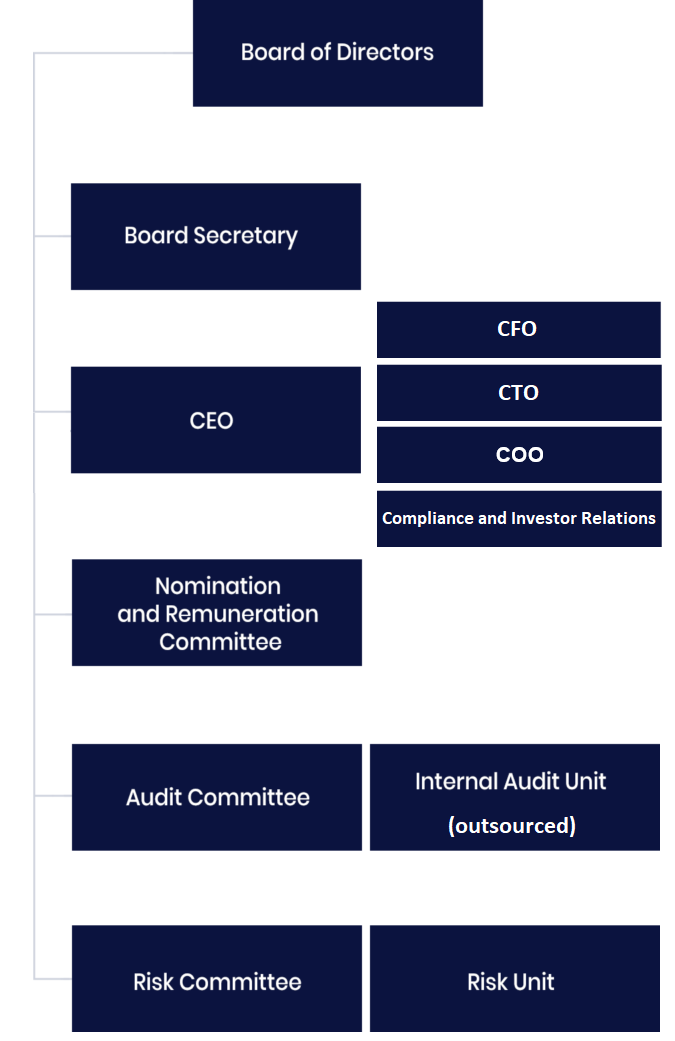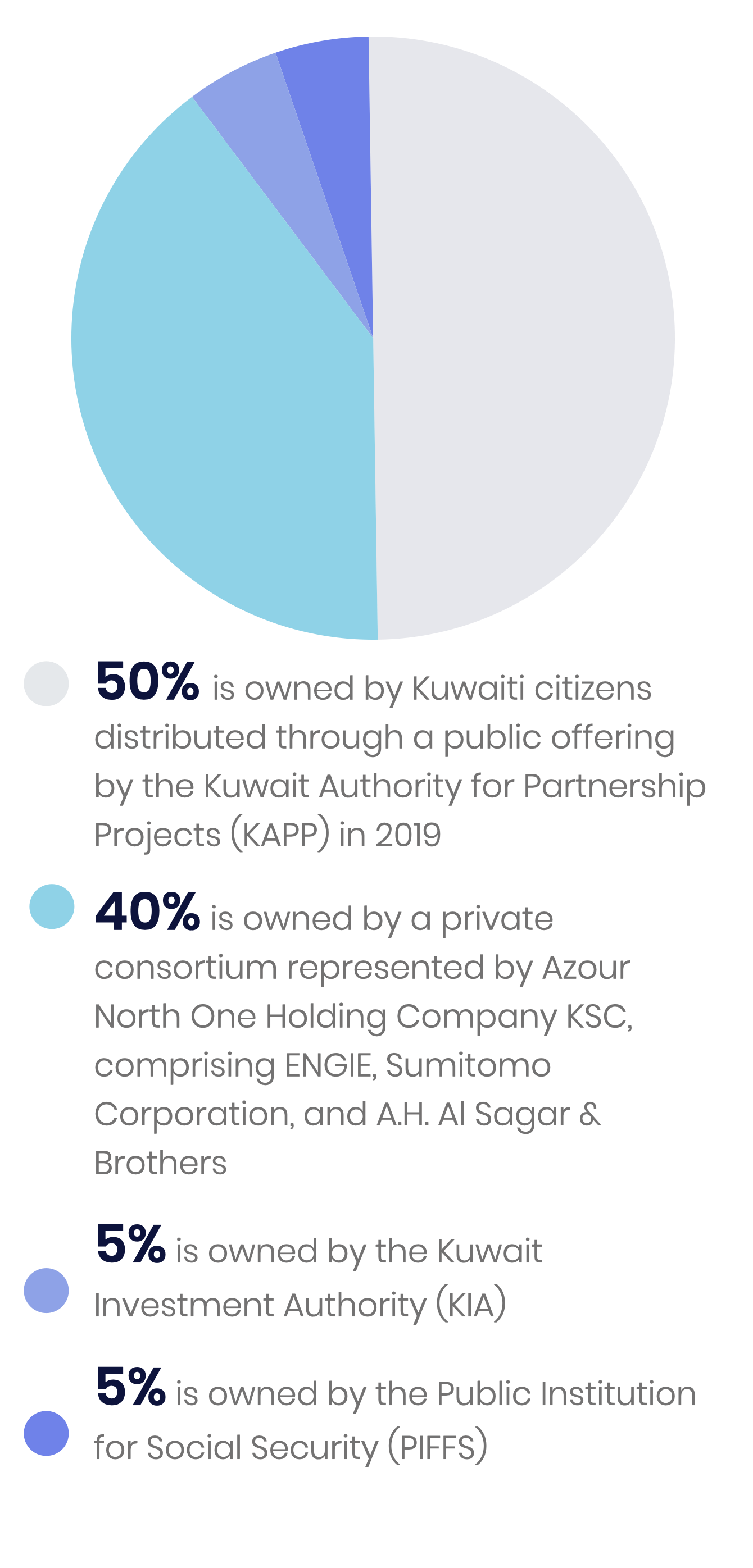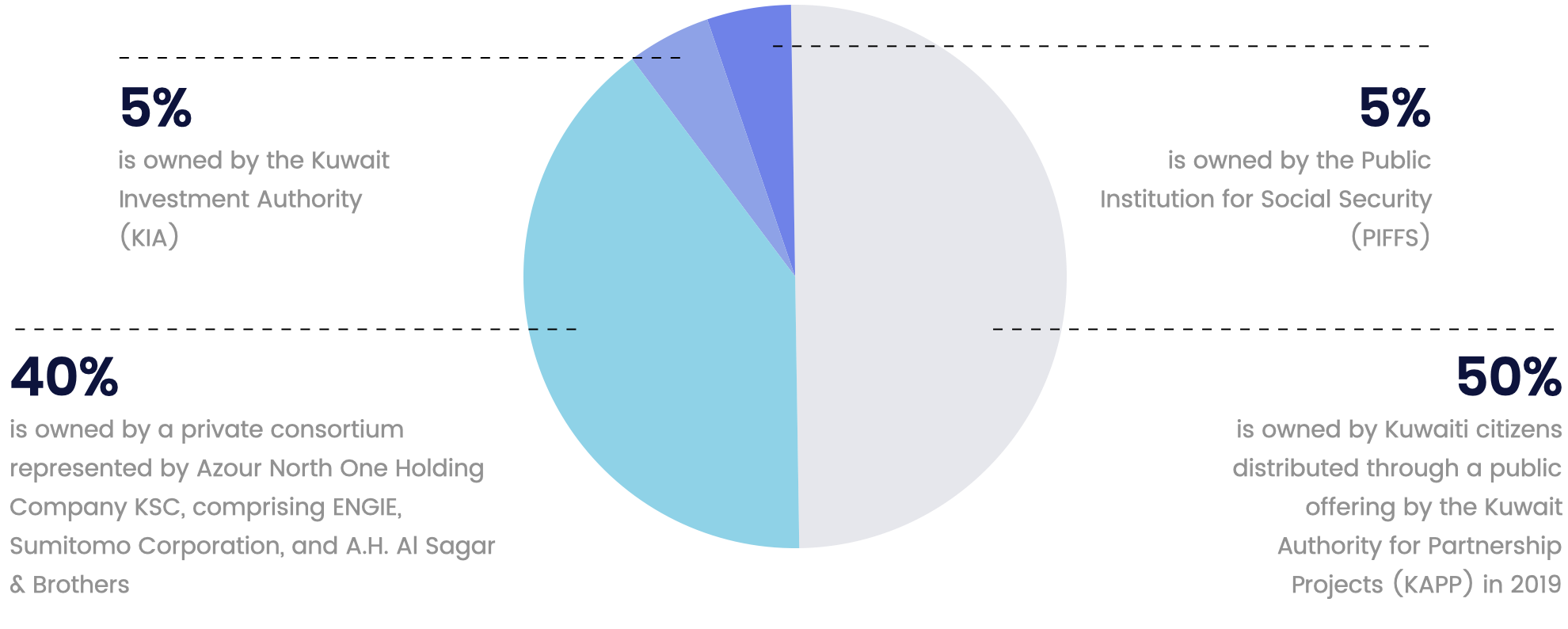Corporate Governance
Structure
Shamal Az-Zour Al-Oula Power and Water Company K.S.C. (Public)’s corporate governance framework incorporates and upholds four key elements, which include: strong relations with shareholders; effective cooperation and communication between the Management and the Board; a system of performance-related compensation for managers and employees, as well as transparent and consistent early reporting; and protecting and upholding the rights of the stakeholders.


Shareholding Structure


Board Responsibilities
- Strategy – approval, oversight, and implementation of the strategic direction and objectives.
- Shareholder Value – creating and delivering sustainable shareholder value through effective business management.
- Risk appetite – approval and oversight of the level of risk the organization is prepared to accept in pursuit of its objectives and strategy.
- Corporate Governance – ensuring the high standards of corporate governance in terms of Board practices, management, and internal controls, compensation, organization structure, disclosure, and transparency.
Board Committees
Nomination and Remuneration Committee
The Nomination and Remuneration Committee assists the Board in examining its oversight and upkeep responsibilities relating to the compliance, integrity, and effectiveness of the Company’s remuneration and nomination policies and procedures. This includes making appointment recommendations to the Board of Directors for incoming board members and executive management; periodically assessing the remuneration of the Board of Directors and executive management in accordance with strategic objectives; developing training programs and raising the awareness and profile of the Board of Directors, and overseeing the evaluation process of the Board and its Committees.
- Ahmad Al Mujalham, Chairman
- Fatima AlHomaidan, Member
- Taizo Matsuda, Member
- Farah Abdulrahman AlHumaidan, Secretary
Risk Committee
The Risk Committee is responsible for the review and monitoring of all aspects of risk management including risk appetite, strategic risk, market risk, and operational risk. The Risk Committee must review policies on all matters related to risk and submit a periodic report to the Board and to the regulatory authorities.
- Ernesto Parra, Chairman
- Paul Leslie Floyd, Member
- Julien Diaz, Member
- Farah Abdulrahman AlHumaidan, Secretary
Audit Committee
The Audit Committee is responsible for overseeing the internal control framework and its effectiveness via the internal audit function and reports the results to the Board of Directors. The Board Audit Committee is also responsible for monitoring and coordinating with the external auditors on subjects related to the financial statements.
- Balwinder Panesar, Chairman
- Ghazi Abdulrahman Al Sanie, Member
- Eyad Ali Al Falah, Member
- Farah Abdulrahman AlHumaidan, Secretary
Corporate Values
Code of Conduct
The Board takes the lead in establishing a code of conduct to clarify the organization’s mission, values and principles to act as an open disclosure on the operations of the company. This acts as an essential tool to encourage discussions on ethics and to improve how employees address ethical dilemmas, prejudices and grey areas that may arise in day-to-day work.
Conflict of Interest Policy
Shamal’s conflict of interest policy is intended to act as a crucial guide for its Board of Directors and employees in conflicts of interest situations, should they arise. This guide also provides a clear understanding for individuals and the company to manage these conflicts and to promote the best interests of the company as a whole.
Related Party Transaction Policy
The related party transaction policy establishes the guidelines and principles to ensure that related party transactions are conducted according to corporate governance best practices and appropriate transparency. It will always prioritize the best interests of the company and avoid abuses and misuse of company assets.
Confidentiality
The Company is committed to preserving the confidentiality of information, data and non-public information, as per the laws and instructions issued by the regulatory authorities.
Whistleblowing
The Company ensures a transparent working environment for all its employees. The aim of the whistleblowing policy has been set by the Board to encourage employees and related parties to come forward when they suspect misconduct without fear of subsequent discrimination, disadvantage, or dismissal. (whistleblowing procedure)
Shareholders’ Rights
Protecting shareholders’ rights is a key requirement stipulated by corporate governance rules and the Companies Law. Shamal has prepared a policy that ensures the identification and protection of shareholders’ rights in accordance with the company’s Articles of Association to ensure that all shareholders can exercise their rights in an equal and fair manner.
Stakeholders’ Rights
Shamal ensures respect and protection for the rights of the company’s stakeholders set forth by the applicable laws of the State of Kuwait and the treatment of all stakeholders in a fair and equal way. Stakeholders are customers, shareholders, employees, community, vendors, and regulatory authorities.
Corporate Social Responsibility
Shamal will seek to be an active community player and will aim to have a positive impact on the Kuwaiti community. The company supports corporate social responsibility initiatives, as it is Shamal’s belief that all business activities should protect and bolster the community it operates in.
